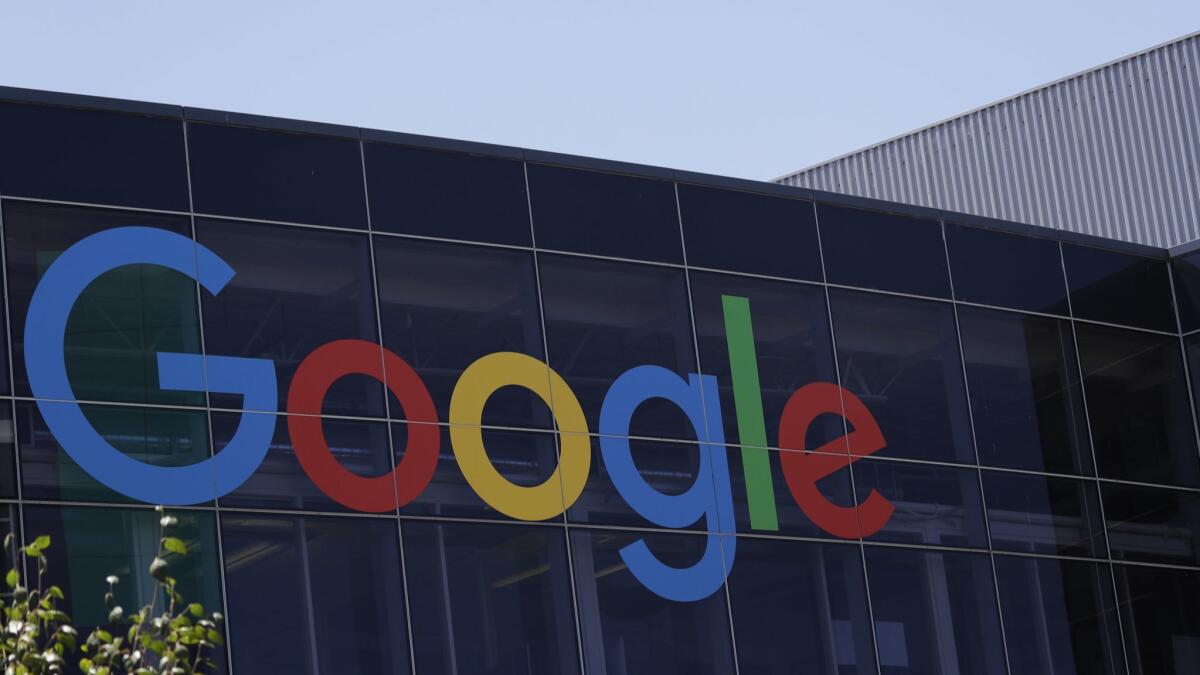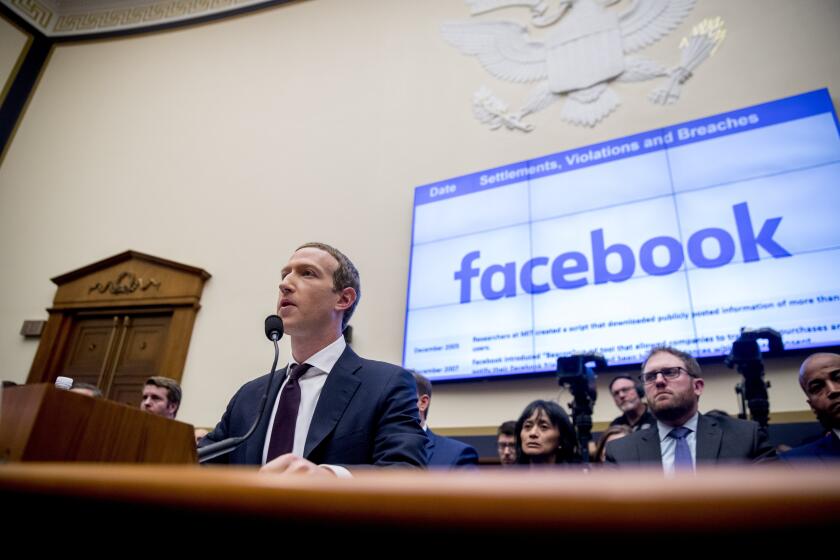Google sued by 10 states over ‘monopolistic’ ad deal with Facebook

- Share via
Alphabet Inc.’s Google reached an illegal deal with Facebook Inc. to maintain a chokehold over the lucrative digital advertising market, according to a lawsuit filed by 10 states led by Texas.
The complaint, which targets Google’s central role in the buying and selling of display ads across the web, was filed Wednesday in federal court in Texas.
“Google repeatedly used its monopolistic power to control pricing, engage in market collusions to rig auctions in a tremendous violation of justice,” Texas Atty. Gen. Ken Paxton said in a video posted on Twitter announcing the lawsuit.
“If the free market were a baseball game, Google positioned itself as the pitcher, the batter and the umpire,” Paxton said.
The case marks the second antitrust action against the search giant after the U.S. Justice Department filed a landmark monopoly case against the company in October.
Texas and the states said Google came to dominate the display advertising market not through innovation but by relying on exclusionary tactics that shut out competition.
“The Supreme Court has warned that there are such things as antitrust evils,” the complaint says. “This litigation will establish that Google is guilty of such antitrust evils, and it seeks to ensure that Google won’t be evil anymore.”
A Google spokesperson called Paxton’s suit “meritless” and said the company had “invested in state-of-the-art ad tech services that help businesses and benefit consumers.”
“Digital ad prices have fallen over the last decade,” the spokesperson added. “Ad-tech fees are falling too. Google’s ad-tech fees are lower than the industry average. These are the hallmarks of a highly competitive industry.”
The states accused Google of entering into an illegal agreement with Facebook, its biggest competitor in the advertising market, to manipulate the online auctions where ad space is bought and sold. The agreement had not been made public previously.
Facebook threatened to compete against Google with its own marketplace and support a type of auction favored by publishers. Facebook then backed off in return for Google giving Facebook “information, speed and other advantages” in auctions run by Google for publishers’ mobile apps, according to the complaint.
Facebook didn’t immediately respond to a request for comment on the allegations.
Many of the details of their arrangement are redacted from the complaint, including Google’s internal code name for the deal, which was inspired by a Star Wars character, the complaint says.
Pressure on dominant technology companies has escalated under President Trump. Last week, Facebook was sued by the Federal Trade Commission and a coalition of states that want to break up the company by unwinding its acquisitions of Instagram and WhatsApp, deals the government says were part of a campaign to illegally crush competition.
The push is expected to continue under President-elect Joe Biden as the power of internet platforms has become a rare issue that has raised concerns from both parties.
Although Biden didn’t make tech regulation a campaign focus, experts say he’s likely to continue the Trump administration’s push to curb Facebook’s market power.
Paxton had also joined the Justice Department’s case in October, along with 10 other Republican state attorneys general, in the most significant antitrust case in more than two decades. The federal case focuses on Google’s position in online search, alleging that it used exclusive deals to extend its monopoly.
The Google ad-tech business, which sells services that handle almost every step that a digital ad takes on its journey from a brand’s creative team to a consumer’s screen, generated more than $21 billion in revenue in 2019.
Another group of states led by Colorado is also investigating Google and could file a third lawsuit as soon as Thursday focusing on the search and advertising business, according to two people familiar with the matter.
More to Read
Inside the business of entertainment
The Wide Shot brings you news, analysis and insights on everything from streaming wars to production — and what it all means for the future.
You may occasionally receive promotional content from the Los Angeles Times.











